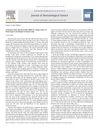Autologous Cell Therapy for Aged Human Skin: A Randomized, Placebo-Controlled, Phase I Study
September 2019
in “
Skin pharmacology and physiology
”
autologous cell therapy RCS-01 non-bulbar dermal sheath anagen hair follicles intradermal injections extracellular matrix TGFβ1 CTGF COL1A1 COL1A2 COL3A1 lumican mRNA cell therapy ECM transforming growth factor beta 1 connective tissue growth factor collagen type I alpha 1 collagen type I alpha 2 collagen type III alpha 1 lumican

TLDR RCS-01 therapy is safe and may improve skin structure by affecting gene expression.
In a study from 2019, researchers investigated the safety and potential efficacy of RCS-01, an autologous cell therapy product for treating aged skin. RCS-01 is made up of approximately 25 million cultured cells derived from the non-bulbar dermal sheath of anagen hair follicles. Participants in the study received intradermal injections of RCS-01, cryomedium, or needle penetration without injection into four areas of buttock skin either once or three times at monthly intervals. The primary endpoint was to assess local adverse event profiles, and the secondary endpoint involved measuring the expression of genes related to extracellular matrix (ECM) homeostasis. The study found that injections were well tolerated with no severe adverse events reported one year after the first injection. A single treatment with RCS-01 significantly upregulated the expression of several genes (TGFβ1, CTGF, COL1A1, COL1A2, COL3A1, and lumican mRNA) associated with ECM homeostasis when compared to placebo-treated skin. However, the cohort size was not large enough to evaluate dose-ranging or conduct subgroup analyses of efficacy. Overall, RCS-01 therapy was well tolerated and appeared to induce a gene expression response indicative of improved ECM homeostasis.



